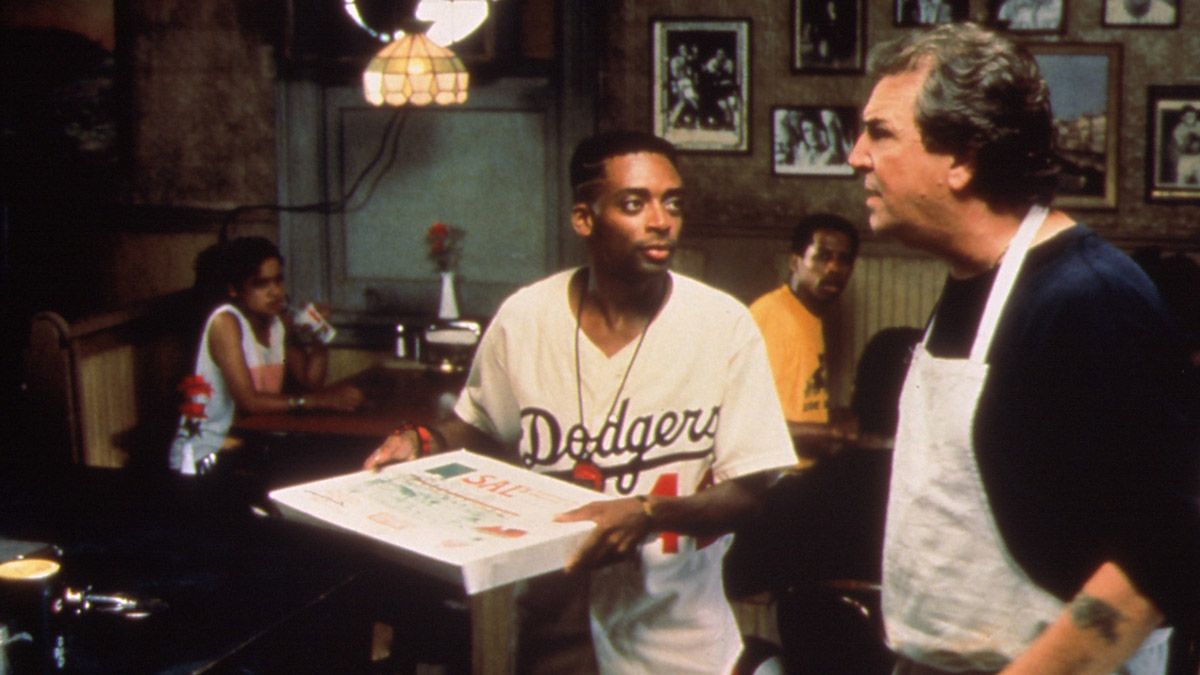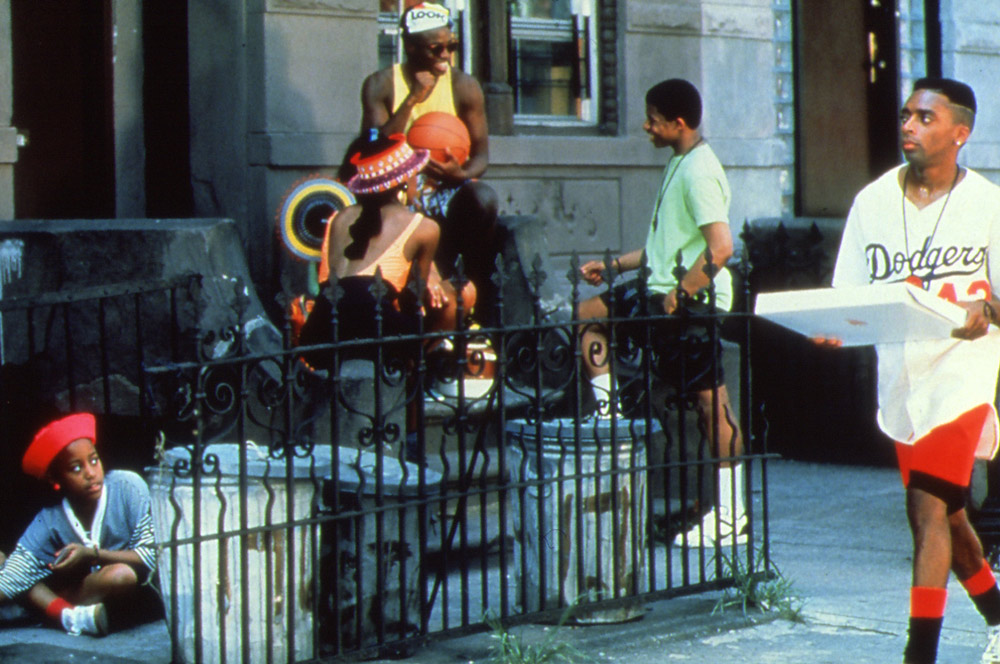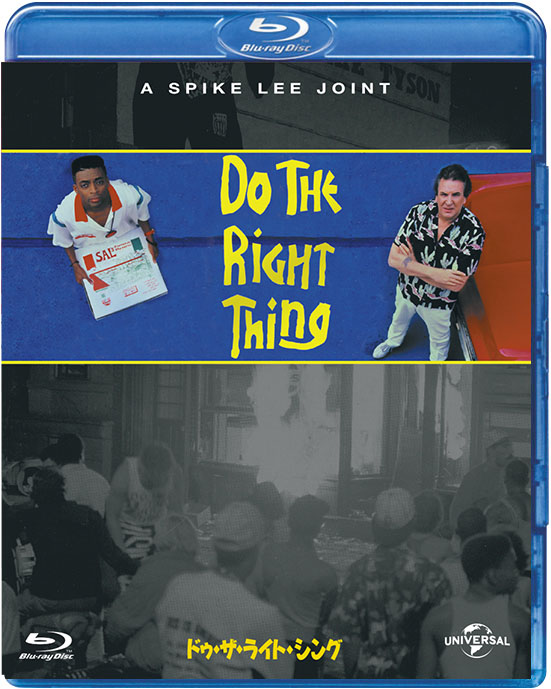
(C) 1989 Universal Studios. All Rights Reserved.
“Do the Right Thing” A Spike Lee-directed film that continues to question the meaning of “LOVE” and “HATE”
2019.04.24
Meaning of “LOVE” and “HATE” rings
The opening song, " Fight the Power " by Public Enemy, was born from the relationship between the band's central figure, Chuck D, and Lee. When it was released, it left a strong impression and became a representative number of rap music in the 1980s. "Elvis may be a hero, but we don't care about him." Such radical and provocative lyrics are sung, making a statement for African Americans.
The rhythmic daily life of people living in downtown New York is depicted using music that emphasizes rhythm and beat, and a lot of colorful colors.At first, the eye is drawn to the intense parts, but if you look closely, , through its light humor, it also conveys warm human emotions. Monkey feels proud when his children grow up eating the pizza he made. A humanistic conversation between the beer-soaked Mayor (Mayer) and Mother Sister, who always clap their lips. A DJ who calls himself "Love Daddy" and conveys his great love through music (played by Samuel L. Jackson).

"Do the Right Thing" (C) 1989 Universal Studios. All Rights Reserved.
It captures the moments when the deep sense of discrimination and hatred that lies deep within the heart explodes due to a slight trigger, while also providing scenes in which people's love and humanity overflow.
Radio Raheem, wearing a "LOVE" ring on his right hand and a "HATE" ring on his left, says, ``The right and the left are always fighting. People always kill each other because of the left, but the right is the soul of people.'' He will eventually win by KO.”
This memorable line is taken from the cult film `` Night of the Hunter '' (1955), starring Robert Mitchum and directed by Charles Laughton. In this work, Mitchum, dressed as a thug, has "LOVE" and "HATE" tattooed on his fingers, and speaks similar lines. Spike Lee loved this movie so much that he created scenes inspired by Mitchum. And at this year's Oscar ceremony, he appeared wearing a "LOVE" and "HATE" ring.
The new film, " Black Klansman ," is a film adaptation of the groundbreaking memoirs of Ron Stallworth, who became the first black police officer in Colorado Springs, Colorado in the 1970s. From the perspective of an African-American police officer investigating the KKK, a white secret society, the film exposes America's racial issues, and by making his partner in the investigation a Jew, the film explores the issue of discrimination against minorities.
Footage of the 2017 racial riots in Charlottesville and President Trump are also used, and there are scenes mourning the victims. The words "No Place for Hate" (Nothing Comes from Hate) were engraved at the scene of the incident, and this may be the Arrival the director was sending to this day and age.
From his early masterpiece "Do the Right Thing" to "Black Klansman," Spike Lee has been focusing on racial issues for 30 years, depicting what lies between love and hate. Through his work, we can see the history of America that other directors have not told.
Text: Sawako Omori Film journalist and critic
Since the 1980s, he has been involved in writing, researching, and translating texts related to movies. Since 2017, he has been a member of the Ken Russell Society of Kingston University, UK. His books include ``Lost Cinema'' (Kawade Shobo Shinsha) and ``Movies for Sleepless Nights'' (Film Art Publishing), among others. His translations include two books about Woody Allen, ``Woody on Allen'' and ``Woody'' (both published by Kinema Junposha). The new book is the non-fiction book ``Mini Theater Revisited'' (Artes Publishing), which follows the 30-year history of Tokyo's mini theaters. This is a complete rewrite of the series that was published on Geijutsu Shimbun's website. Click here for a report on when "Do the Right Thing" was shown at Hibiya Chante Cine.

"Do the Right Thing"
Blu-ray: 1,886 yen + tax / DVD: 1,429 yen + tax
Publisher: NBCUniversal Entertainment
*Information as of April 2019.
(C) 1989 Universal Studios. All Rights Reserved.

